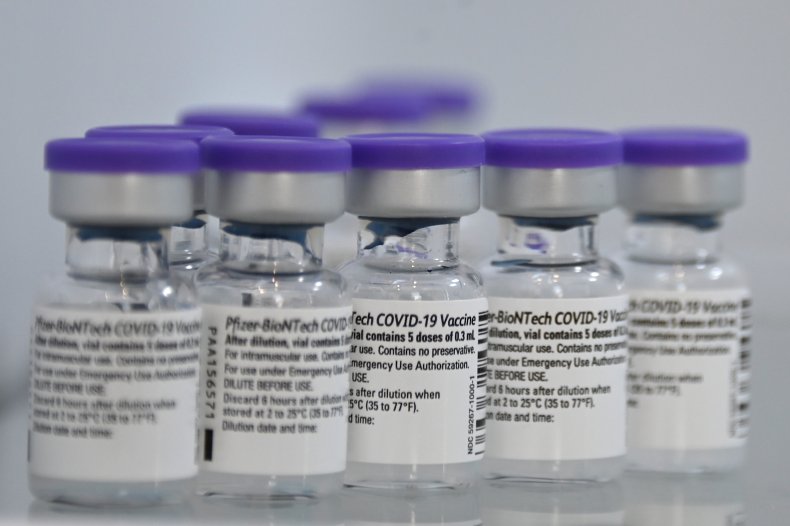[ad_1]
Most Americans who voted for President Joe Biden say that the rollout of COVID-19 vaccines has been slower than they expected, according to a new poll.
A Hill/HarrisX poll released Friday indicates that 51 percent of Biden voters expected the rollout to be faster, while only 28 percent who voted for former President Donald Trump agreed. A 40 percent plurality of all respondents said that vaccine rollout had been slower than expected, while 32 percent said it was faster than expected and 28 percent indicated it was about the same as expected.
The poll was conducted online among 2,854 registered voters between January 8 and January 11. It has a margin of error of 1.8 percent.
Biden has pledged to administer at least 100 million vaccine doses within the first 100 days of his administration, ending on April 30. There had already been 39.8 million vaccine doses distributed, with 19.1 million administered to patients as of Friday, according to the Centers for Disease Control and Prevention’s COVID Data Tracker.
The president’s goal of averaging 1 million doses per day seems achievable, especially since nearly that many are already being administered daily on average. Although supply chain issues have complicated matters, new doses are continuing to be produced and there are more than 20 million distributed doses that have yet to be given to patients.
Some of Biden’s COVID-19 advisers and officials quickly denounced the state of vaccine rollout efforts after the new president took office, claiming that the previous administration had left distribution in disarray.
“What we’re inheriting from the Trump administration is so much worse than we could have imagined,” Jeff Zients, Biden’s COVID-19 coordinator, told reporters on Wednesday. “We don’t have the visibility that we would hope to have into supply and allocations.”

SEBASTIEN BOZON/AFP/Getty
The companies producing the approved vaccines, Moderna and Pfizer/BioNTech, both promised to deliver 100 million doses by the end of March. They are each currently distributing an average of 4.3 million doses per week, while 7.5 million per week would be required to meet the target, according to NPR. Still, more doses than would be needed to meet the president’s goal should be available well before the end of Biden’s 100 days, even at current production levels.
COVID-19 vaccines from other companies may also soon become available and boost supplies. Johnson and Johnson’s single-dose vaccine is in advanced stages of development and could potentially be approved before April 30, while a number of other vaccines have been approved for use outside of the U.S. and are currently being produced.
The relatively modest goal of 100 million doses administered would equal 50 million full vaccinations, since both of the current vaccines require two doses given about a month apart. Of those who have already received the vaccine, only about 2.7 million people have completed the course. For the country to reach herd immunity, experts believe that up to 90 percent of the population, close to 300 million people, may need to be fully vaccinated.
Trump had initially promised that 100 million doses of vaccine would be available by the end of 2020, while in December the former administration set a goal of administering at least 20 million doses before the new year. In reality, around 12 million doses had been distributed by then, with fewer than 3 million doses actually administered. Regardless, a 37 percent plurality of Trump voters insisted that the rollout had been faster than expected, while 32 percent said it had met expectations, according to the poll.
Newsweek reached out to the White House for comment.
[ad_2]
Source link